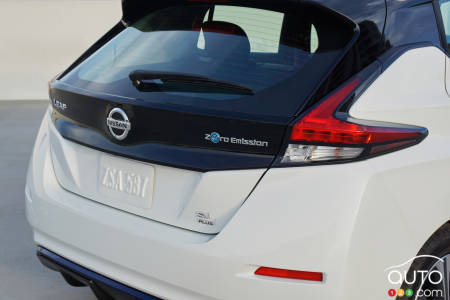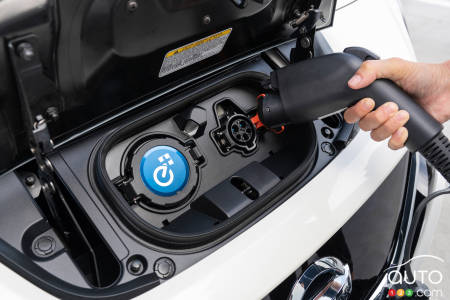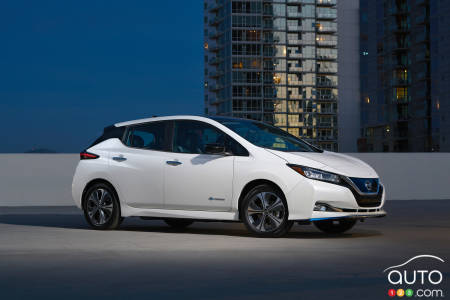After a few hiccups, the Nissan LEAF PLUS finally made its debut this January at the 2019 Consumer Electronics Show (CES) in Las Vegas. This long-awaited version promises more range and, the company hopes, will keep it competitive on that front with others in the electric-car segment.
Recall that when it launched in 2018, the next-generation LEAF came with a range of just 241 km; this placed it far behind the Chevrolet Bolt (383 km). And now, the market has just welcomes the Hyundai Kona electric and its 415 km of range. A true arms race.
Tesla’s Model 3, meanwhile, comes with a range of 354 km in its base trim. Get the higher-performance version and that climbs to nearly 500 km.
Which meant that the LEAF and its 241 km lagged behind from the moment it launched. And this has led, one year later, to the introduction of the LEAF PLUS, with an official range of 363 km. This closes the gap significantly with competitors, though it doesn’t erase it completely.

Now it appears that that official range comes with a caveat. The company has confirmed that the additional weight carried by the two higher trims of the LEAF PLUS, the SV and SL, causes a range loss of 24.1 km.
This brings the official range for those trims to 339.5 km, in other words.
The added weight isn’t significant, only about 30 kg. The S base model’s total weight is 3,780 lb, while the SV weighs in at 3,811 lb and the SL comes in at 3,853 lb.
According to the Autoblog website, the biggest culprit is the set of tires each higher trim rides on. While the base model has 16-inch wheels with plastic covers, the SV and SL get 17-inch alloy wheels.

This phenomenon is not unique to the LEAF PLUS, we should point out. Other EVs must deal with the same reality, and gas-engine vehicles are not exempt either.
To put it simply, in the automotive universe weight is the enemy of efficiency.
At the same time, consumers have the right to know if they’re not going to benefit from the advertised range when choosing a particular trim of a model.
No doubt Nissan will come up with new variants offering increased range. The company’s long-term commitment to electrification is solid, and the LEAF is just an early iteration of many EVs to come.



